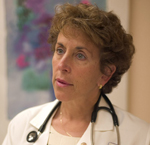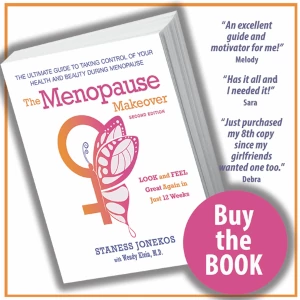 Expert: Wendy Klein, M.D., co-author of The Menopause Makeover
Expert: Wendy Klein, M.D., co-author of The Menopause Makeover
Dear Dr. Klein,
HELP, I am so confused about hormone therapy after the latest headlines about breast cancer and hormones. I had a hysterectomy 5 years ago, and my doctor prescribed the Vivelle patch 1.0 mg and I love it. Should I stop using it? I am afraid of getting breast cancer even though it does not run in my family. What should I do?
The headlines about breast cancer associated with hormone therapy use, although recent, do not really represent new data. We have known for many years that HT use greater than 5 years increases breast cancer risk. That said, adverse effects are generally dose related, and all the research showing increased risk was done using doses of estrogen that are 3-4 times higher than what is used today.
The newest headlines reflect a long-term follow up of 2002 WHI results, in which it was found that prolonged use of estrogen and progesterone slightly increased the risk of breast cancer death. Of note is that this was not seen in women like yourself who, after hysterectomy, took estrogen only.
The best approach is to consult with a clinician who can help assess your risk for breast cancer by looking at personal medical history, family history, age, race and ethnicity, reproductive history, and history of breast biopsies. If you have no increased risk, then staying on estrogen for now may be appropriate. The answer in part depends upon personal considerations, such as the age at which you had your hysterectomy, your risk for bone loss, and how long you have been treated with estrogen.
Also, it is reasonable to consider very slowly lowering your dose of Vivelle, so that you are on the lowest effective dose. Above all, consult with your healthcare provider so that you can jointly make a thoughtful and carefully considered decision that meets your individual needs. There is no need to make sudden changes.
Living a healthy lifestyle, such as maintaining an ideal weight, not smoking, regular exercise, consuming low to medium glycemic carbohydrates, and limiting alcohol consumption can also help reduce your risk of breast cancer.
















